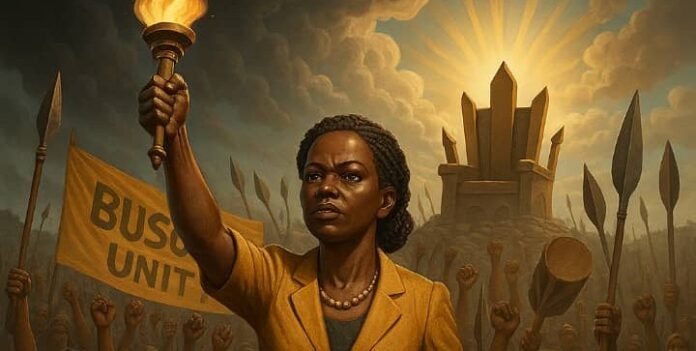By Isaac Christopher Lubogo
The announcement of Mama Kadaga’s homecoming in Kamuli, September 19, 2025, has the aura of liturgy. The drums are tuned, the slogans coined, the stage erected. “Busoga Tusagambe ni Mama Kadaga” will echo in the air as a region, long fractured by intrigue, pretends unity for one afternoon of choreography. But beneath the banners and anthems lies a haunting question: what exactly are we celebrating, and at what cost?
The Theatre of Betrayal
Kadaga has known betrayal not as theory but as lived reality. Once the darling of the NRM establishment, she was pushed aside when ambition whispered beyond the corridors of Parliament. The machinery of power turned against her, and the very hands she had held up for years were quick to strike her down. Yet, as with Naipaul’s Miguel Street, absurdity became normalized—treachery is no longer scandal but custom in Uganda’s political theatre.
If the homecoming is only a pageant of gratitude, it risks becoming another act in this tragic play: the people cheering the survivor of betrayal while simultaneously binding her back into the very system that humiliated her.
The Case for Independence
And yet, within betrayal lies the seed of rebirth. Kadaga is no ordinary politician—she is a woman of firsts: the first female Speaker of Parliament, the first woman to establish a law firm in Uganda, a First Deputy Prime Minister, and a constant presence in the imagination of Busoga. What prevents her from stepping beyond the walls of a party that has often reduced her to ornamentation?
Uganda, after nearly four decades of male-dominated politics, may be prepared—however reluctantly—for its first female president. The terrain is hostile, yes, but history’s doors rarely open to the timid. Mandela walked out of prison to lead. Ellen Johnson Sirleaf braved Liberia’s ruins to restore it. Why not Kadaga?
An independent candidacy—or the formation of a Kadaga-led party—would not only fracture the monotonous rhythm of Ugandan politics but also summon women, the youth, and the betrayed from all regions. It would be an audacious declaration that betrayal does not end destiny—it catalyzes it.
The Busoga Question
For Busoga, this is no small matter. The region has long been branded as politically fragmented, manipulated by external hands, and too hesitant to consolidate its own. A Kadaga candidacy would finally give Busoga a stake not as passengers but as drivers in the national discourse. To rally behind her is to declare that the region will no longer clap from the gallery while others write history on its behalf.
The Disturbing Possibility
Thus, the September 19th homecoming should disturb us. For if it is only pomp and thanksgiving, then it is a funeral disguised as a festival—the burial of Kadaga’s political potency under the weight of applause. But if it becomes a launchpad for an independent vision, then Uganda may yet see the impossible: a woman who refused to bow becoming the standard-bearer of change.
The choice is hers, but also ours. Will Busoga merely “celebrate” Mama Kadaga—or will it finally demand that she leads?
# Suigeneris








